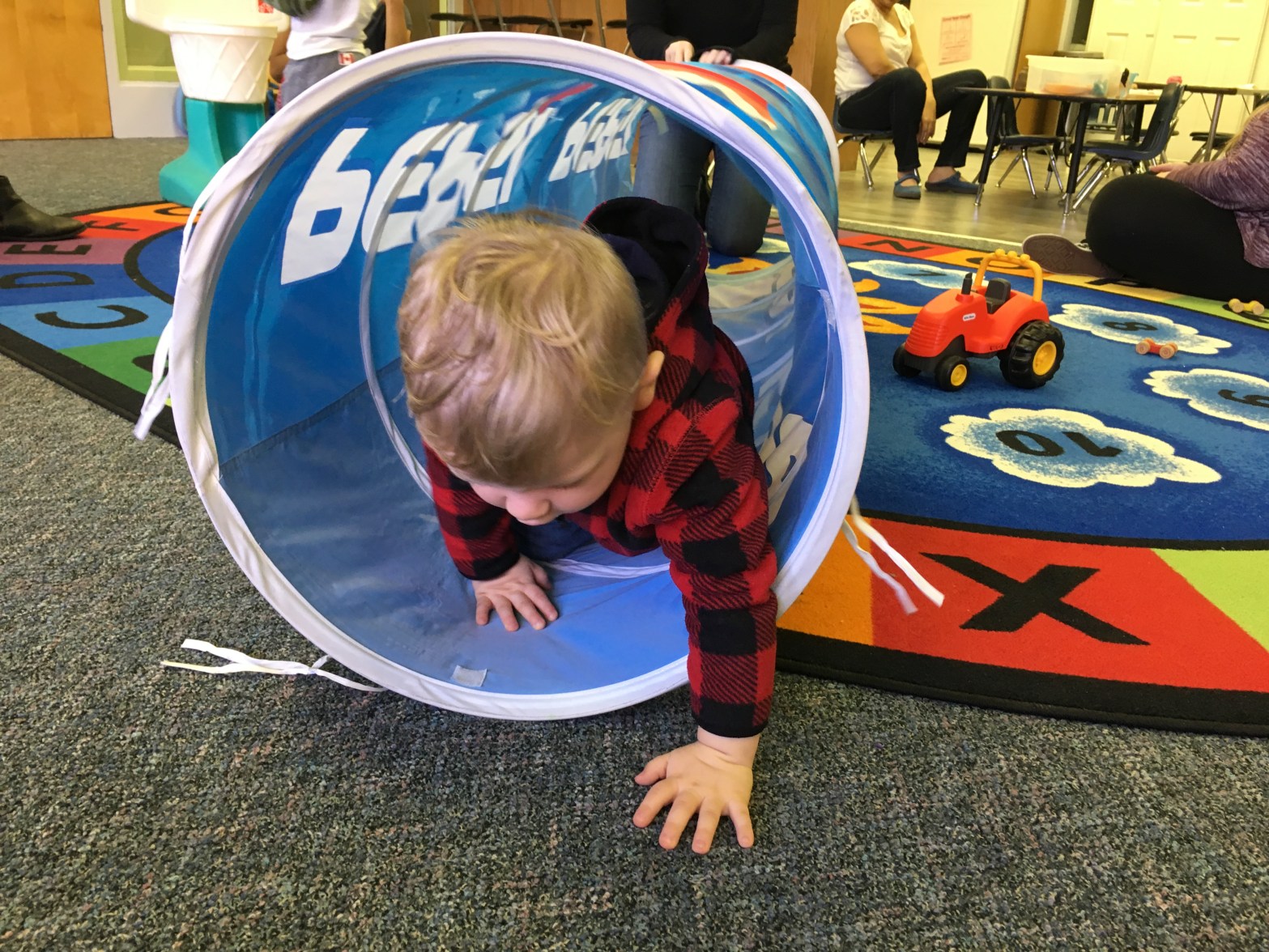Be clear about what you ask for.
The photo above was taken when T was 1 and attending an Early Years program, part of our routine to help develop his speech.
He’s come a long way since!
These days, I appreciate that T verbalizes his feelings, rather than internalizes things. He’ll often let you know exactly how he’s feeling.
This can also be a challenge. In the last year, he’s used words that are provoking.
Depending on how far his mood has unregulated, the hubby and I have been called “idiot,” “dummy,” and he’s even called me “a fucker” once. You can imagine my reaction!
In these situations, I remind myself to stay calm and that it’s a symptom of an inability to regulate his emotions.
It is easier said than done, especially when you are in public and you feel judged as a disregulated boy is screaming “Shut up.”
But we are lucky to have understanding people in T’s life at school and in our personal circle.
It’s one reason we are very open about T’s disability, because it puts context into his challenging moments.
We remind others the behaviours are symptoms of a kid with a brain disability that makes regulating his emotions harder than for an average kid.
At home, we’re working to help T find alternative ways to channel his frustrations, impatience and anger.
One of the best ways, a lightbulb moment for us, is to stay calm when he is at his worst.
Again, this is easier said than done. It seems counterintuitive to most adults, because they’d say we’re letting T get away with bad behaviour.
Recently, T started a new thing of telling us and daycare staff, “I am going to turn into a monster” when he is feeling frustrated, usually when he’s not getting his way.
I often stifle my laughter as I tell him that I think he’s already turned into one.
While most people will find his phrasing concerning, I consider it progress, because he is recognizing his emotions and finding healthier ways to process them.
The hubby and I also use books and short videos to help T learn strategies.
This weekend, I came across this excellent video “Just Breathe,” shared by the wonderful Our Sacred Breath.
It features kids talking about how they feel when they get angry and suggests “breathing” as a way to deescalate.
I’ve bookmarked this video, created by Wavecrest Films, to share with T one day soon.
The hubby and I try to be realistic. We know this will be a long journey.
We are thankful for how far T has come – feedback echoed by daycare staff – and that his positives outweigh the challenges.
At T’s positive moments, he is utterly caring, charming, funny, endearing and personable.
We celebrate every step and try to have a sense of humour at the missteps.
On a recent weekend, T was watching videos on the tablet. I gave him many transition reminders he will have to take a break to do reading work.
After my last reminder, he snapped back loudly, “Shut your mouth!”
I took a deep breath and replied calmly, “Use polite words.”
“Shut your mouth, please!” He shouted back right away.
Always one to look at a situation as half glass full, I thought to myself, “At least he said, ‘Please!’”


My husband and I were just talking this morning about how, when we were kids, you never heard about or saw kids with developmental disabilities. Back then they all went to a special school. The fact that you talk about T’s disability shows how far our society has come. However, a few years ago when I was taking my adult clients into the community I was surprised at how many people are still so ignorant. I even had a department store search my cerebral palsy client in a wheelchair because they thought she took something. Keep in mind I had to feed her because she couldn’t use her hands.
LikeLiked by 2 people
The school boards in my part of world are moving towards the trend of inclusive education so all kids are integrated. I do love this approach on paper but I do also worry it’s just budget cuts in disguise. T’s program was cut but thankfully when he was integrated into a regular classroom, he received a one on one support because he would be lost without her. Not all kids are as lucky and I am doubtful this support will last forever. Slowly but surely, advocacy and awareness are key.
I agree with you that ignorant behaviour still exists and it’s awful your client had to endure that along with you. Very rude and awful behaviour!
LikeLiked by 1 person
Wow, you are such an amazing parent .
LikeLiked by 2 people
Thanks Gary. We don’t always get it right but we give it our darnest best. 🙏 And I get great inspiration from your and Hawklad’s journey as well!
LikeLiked by 1 person
You deserve a medal for being so patient and positive!! Being mindful of your breathing has a lot of benefits and is often used in yoga and meditation. So I can see why it can be helpful when you’re angry as well.
LikeLiked by 1 person
Thanks Linda. 😊 Yes, patience is truly a virtue and yields great dividends with this little guy. The opposite just throws things completely off the rails.
And I do miss getting to do yoga and hot yoga these days!!!
LikeLiked by 1 person
Same! I had just bought a 20 class pass at a studio right around the corner from my office a few weeks before the pandemic started. Unfortunately they closed their doors not long after. Every so often I’ll practice along with a video at home, but it’s not the same as being in the studio.
LikeLiked by 1 person
The videos definitely are not the same but it helps tide us over in the meantime. 😊 Hope you can use your class pass soon!
LikeLiked by 2 people
Such a helpful and great blog!
LikeLiked by 1 person
Thanks as always for the words of encouragement and support, Vickie!
LikeLiked by 1 person
I had to laugh at the end 🙂 One line caught my attention though. I think T saying that he is going to turn into a monster is huge. It sounds like he is aware of his reaction even if he is not able to fully control them. He may also be manipulative, which may not be a bad thing because manipulation is less emotional. But beware, he may come up with a new strategy if this doesn’t work. Clever little monster 🙂
LikeLiked by 1 person
Clever little monster is an apt phrase, for sure. I try to balance viewing his behaviours as a symptom of a disability vs a kid who is also becoming aware and savy with social engineering situations! 😂 The response in both situations, we try to at least, is to be firm with boundaries and limits and be calm in our response. Not always easy, as you know! 😆
LikeLiked by 1 person
Oh my goodness, Ab! You are always so positive and make me laugh. I think the research is so affirming as to your approach even though it does feel hard around other adults that might not understand. And the progress – that is awesome. I’m sure it will pay off for T and for your relationship.
And his cute little hands in that picture from when he was a baby! Adorable!!
Inspirational and delightful post as always! 🙂 ❤
LikeLiked by 1 person
Thank you, Wynne. The research definitely supports the approach and we’re seeing that it works. The real test is always during those very unregulated moments and you’re doing your best not to lose it too. 😆
One day at a time! Take care and enjoy your week.
LikeLiked by 1 person
Oh, I know those moments! So hard! But you are right – one day at a time. May we all get better at it! 🙂
LikeLiked by 1 person